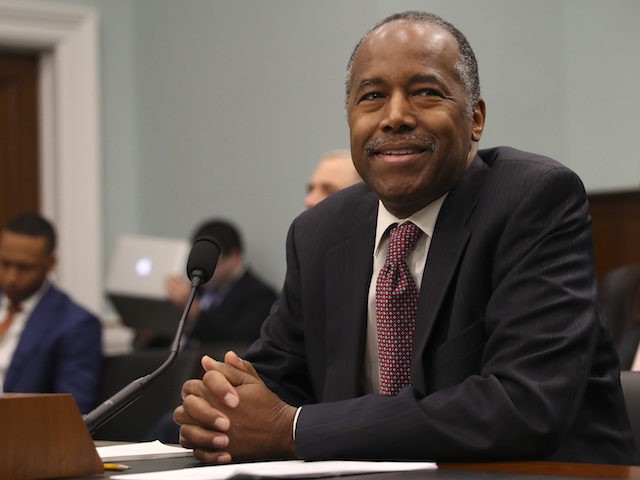Since President Donald Trump was sworn into office nearly 15 months ago, there has been a non-stop (at times furious) effort on the part of the only institutions left to the Left — the MSM, Hollywood, and Academe — to discredit, demoralize, and subvert his Administration.
Often, that has taken the form of attacks directed at members of the president’s cabinet with trumped-up (so to speak) charges of malfeasance. Housing and Urban Development Secretary Ben Carson has, of late, been on the receiving end of such attacks, with many of the president’s enemies calling for his removal over allowing the purchase of higher-end furniture for the secretary’s suite.
In Carson’s case, the media campaign to force his ouster (which has died down in the wake of Veterans Affairs Secretary David Shulkin’s removal this week), is almost certainly driven by his effectiveness in faithfully executing his duties and instituting the reforms promised by the president. The fact that he has carried out one of the more effective top-down reviews of a federal agency in recent history has also made him a target of the reflexively pro-government progressive crowd who have never met a regulation they didn’t like.
Carson has not gotten the credit he deserves, not only for his service to his country — service that comes at great personal sacrifice — but for his bold, reform-minded approach to an agency many think should be eliminated. In recent weeks, Secretary Carson has been working on a rent reform proposal designed to incentivize self-sufficiency by introducing work requirements and raising rents for tenants able to work who receive subsidies from HUD. These common sense reforms, hardly draconian, will save millions in taxpayer dollars, but face stiff opposition from those who view the dependent poor as a more reliable voting block than a struggling, but upwardly mobile, lower-middle class.
Secretary Carson has also put together a task force led by his chief financial officer with the aim of combating waste, fraud, and abuse. A lot of contractors, developers, and grant recipients of HUD-sponsored contracts — many of whom epitomize the revolving door phenomenon of former federal government employees using their connections to cash out with sweetheart deals — never complete the work they were tasked with or for which the grant was awarded. Secretary Carson’s new task force will start eliminating fraud in the arena of contracts and grants, saving countless millions in the process.
But perhaps the real gem in Secretary Carson’s reform efforts is taking another look at the so-called, “Affirmatively Furthering Fair Housing” initiative that is based on a rule by President Obama’s HUD called “disparate impact.” Disparate impact tells communities that even if there are no complaints of discrimination in a city, there can still be racism if not enough minorities are living in more affluent areas of the community. As a result, HUD under the Obama administration forced communities to assess this “disparate impact” racism and alleviate it by building projects in higher income areas. A more blatant example of harmful regulatory overreach and bureaucratic arrogance does not exist. Secretary Carson’s pending decision on how to handle the “disparate impact rule” could set the stage for a politically significant, and symbolically important, frontal attack on liberal social engineering at HUD that would have a massive political windfall.
As long as Ben Carson remains one of the most effective opponents of the regulatory regime in this administration, he will be a target of the pro-government Left. He should wear that as a badge of honor.
Robert Wasinger served in senior advisory and liaison roles in President Donald Trump‘s campaign and transition team, after extensive experience on Capitol Hill.

COMMENTS
Please let us know if you're having issues with commenting.